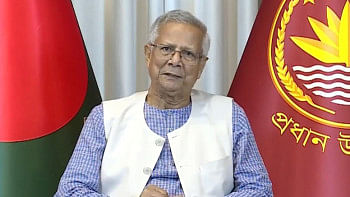Treating some mayors like pawns in chess
ONE by one elected mayors are being suspended with the urgency of an automobile company recalling its defective cars. Three mayors have been motioned out of their offices so far, all accused but none convicted to this day by any competent court. A number of charges have been raised against each one of them, none of which involves abuse of power, financial corruption or fiduciary failure. At this stage they are mere suspects until the court verdict proves them otherwise. If a man is innocent until proven guilty, these mayors are getting the short end of the stick. They're guilty until proven innocent.
These mayors have been accused of ordering crimes, which certainly are of devious nature. Bombs hurled, people killed and properties damaged; the perpetrators of these crimes deserve the toughest punishment permissible by law. But does mere accusation give enough ground for suspension or sacking of elected officials?
The conflict here is between two entities, both elected to public office by their voters. So what authority does one elected entity have to prevent another elected entity from doing his or her work? Even if that incongruity is ignored, how is it fair to deny someone, based on unsubstantiated claims, the mandate given him by the people? How is it fair to undercut people's confidence in an elected official just because the rulers are suspicious of him or don't like his presence?
Ideally, people who elect an official should have the power to de-elect him. It can be done through impeachment when elected representatives act on behalf of people to decide the fate of a condemned colleague. The other choice is to recall the official through a signature drive and by holding an early election to show that people have lost their confidence in him.
Either of these means can be used only when the accusations against an elected official are beyond any doubt. Constitutions in many US states allow a two-step process for getting a state or local elected official out of his office. Thus the person against whom this process can be invoked has to be convicted of a crime or he has to plead nolo contendere (a plea stating that the defendant will not contest the charge but does not admit guilt or claim innocence) to that crime while in office.
The crimes are also mentioned for the sake of clarity, which include felony, or misdemeanour related to the elected official's public duties and responsibilities and involves moral turpitude, and for which the penalty may be imprisonment. The first step is to suspend the elected official from office. During the suspension, he or she may not receive pay or benefits and the office is filled temporarily.
In the second step the elected official is removed from office if the conviction is not appealed or is affirmed on appeal. If the conviction is reversed or overturned, the elected official is reinstated automatically for the remainder of the term, if any, and all pay and benefits are restored. It's also stated that the conviction doesn't happen until the sentencing.
None of the above has happened in case of the suspended mayors. The charge against the mayor of Sylhet goes back to a murder that was committed eight years before he was allowed to contest the elections in 2013. The other two mayors have been charged for their suspected roles in political violence but no clear evidence has been presented to show they were directly involved.
The question is whether the government can deny an elected official in whom people have reposed their trust to serve them. What if this official is eventually found innocent and acquitted? Does the government have the authority to extend his term to compensate him for the lost time? Can the government re-elect him by an executive order?
The answer to these questions is obviously no. Only the constituents have the power to put him back in his office through another election. Then why should the government dislocate someone if it can't relocate him? Why should it break something it can't fix?
A recent mayoral scandal that made headlines involved Toronto mayor Rob Ford, who admitted to public drunkenness, drunk driving and illegal substance abuse in 2013. When he refused to resign, the Toronto City Council voted to transfer certain mayoral powers to the deputy mayor for the remainder of Ford's term. It was done because the law didn't allow for the removal of the mayor.
When elected officials are treated like pawns, it diminishes their right to act freely. Above all, it undermines the people who vote for them. And when people are undermined in a people's republic, what's left of the republic is anybody's guess. Politics should be poker, not chess. Reshuffle cards, deal fresh hands and move on. Don't wait until the last piece is removed from the chessboard.
The writer is the editor of the weekly First News and an opinion writer for The Daily Star.
Email: [email protected]

 For all latest news, follow The Daily Star's Google News channel.
For all latest news, follow The Daily Star's Google News channel. 



Comments